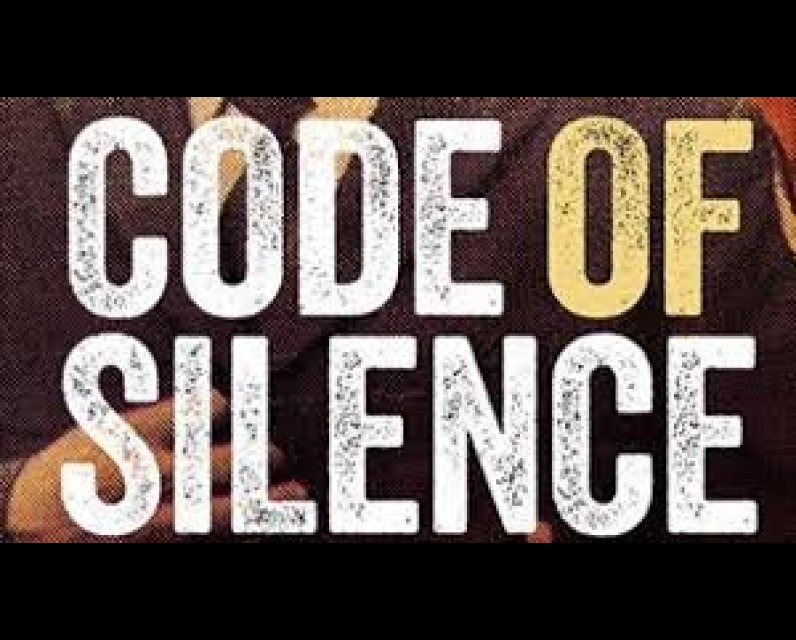Unpublished Opinions
Corruption and Complicity: When Cops Lie

In recent years, the Canadian public has been witnessing the long roll out of police corruption (corruption being any pursuit for personal gain and contravention of organizational values on a systemic level) from police forces in Ottawa, Victoria, Montreal, Thunder Bay ... In fact, these stories linger so long and the corruption is so deep that it's hard to process its effect before the next scandal comes along, almost normalizing it.
If that's not troubling enough, two disturbing features have been revealed in many of these cases: the first is that this cancerous deviance is often firmly anchored to the top - or sideways to political interests and actors - and perpetuated by, or under the watch of, senior police members. Secondly, at the tail end, and only if the transgression enters the complaints or investigative process, it is met with either impunity or lack-lustre punishment. The example being, if you are of the right social milieu in the organization, these behaviours are permissible, if not forgiven. It used to be that lying was frowned upon and on top of that, it's incredibly complicated from both a chronological and biometrics standpoint - the higher the stakes the more committed the liar must be. But when the looming certainty of punishment is removed and impunity is put in its place, the inherent cost of lying is diminished to almost zero.
The organization's problem then becomes the public's problem. Since police are the interpreters of law and civil order, and for some the only source of contact with the legal system, the corruption (bias, racism or sexism, etc.) that is exemplified by the officer inside the organization, undoubtedly creeps into their operational duty. Not compelled to communicate or answer questions unless propped up on witness stand and not subject to review by higher authorities but permitted to make low visibility decisions, the standard of policing, police behaviours and police governance plummets, as does the approval, respect and co-operation of the public, at the hands of the minority.
Although the need for a substantial overhaul has been echoed by experts, professionals and academics over the decades, policing has continued to deteriorate and suggests a lack of balancing factors to drive and hold any efforts to instil change. The balancing factors can be summed up simply: prudence, the ability to discern and decide between conflicting virtues and what is fundamentally right; loyalty and truthfulness with citizens and fellow officers; effacement of self-interests; and intellectual honesty and responsibility to own up to evitable mistakes or poor judgment1. What holds these firm is leadership that embodies all of these, while assuming the ultimate responsibility for the organization's shortcomings and failings - it is here where the most significant impact is made in either preventing or promoting corruption.
Truly principled leaders do not protect their interests or egos over the health of the organization nor do they rule with intimidation or tolerate it; how a leader demonstrates that leadership becomes the default ethical and moral framework that the cultural thrives in - good or bad. Moreover, intervention by leadership in organizational or individual corruption requires an ethical barometer that allows for the understanding, extent and cause of corruption, without this, action by the poorly equipped can be as equally damaging as doing nothing at all. Although incumbent upon leaders to foster an atmosphere that promotes ethical conduct and consistently punishes anything below that standard, each member of the organization is responsible to deliver to this standard. Bad apples, or an entire barrel, left to mentor recruits can spread corruption demonstrated tolerance and by creating a void that will be filled with substandard or unethical officers looking to climb the ranks.
And this is where complicity enters. There is a fable, based loosely on a behavioural experiment, that presents an interesting allegory of what we have been witnessing in policing culture. A group of monkeys are put in a room with a ladder in the middle and over the top step hangs a bunch of bananas. Every time a monkey scales the ladder and attempts to grab the bananas, he is blasted with cold water from the hose, held by the hand of authority. Over and over the monkeys try to reach the bananas and every time they are blasted with cold water. Eventually exhaustion and then defeat sets in and they stop trying all together.
Then some new monkeys are brought in and join the first group of monkeys - the monkeys who know better. When the new monkeys see the bananas, they attempt to climb the ladder to grab them. Barely reaching the middle rung, each time they are grabbed and pulled down by the more senior monkeys in an attempt to maintain the status quo - who, every now and again, are given a banana by the authoritarians for their 'good' work and loyalty. The new monkeys learn, through deterrence by the senior monkeys, not to pursue the bananas. They don't know why they can't have the bananas. I mean, they are there. But no one can have them. The senior monkeys are doing them - and the entire culture - a favour. Challenging the social order and ethos, that's just not done around here. Nobody likes a trouble-maker.
Although it's only a story, it's easy to imagine how a poisoned culture can persist under the hose-wielding authoritarians. We learn not to do a lot of things by watching others and if every time someone attempts to utilize processes meant for them, they are punished, those watching will be deterred and will spread the word. Anecdotally, this demonstrates how complicity materializes: there are those who are complicit from exhaustion, intimidation and demoralization and there are those who are complicit because they get a reward - a banana, a free-pass, maybe a promotion. In the end, complicity crushes those with a strong sense of morals and ethics, while cutting a path for the corrupt.
In society, we often we rely on 'casting out' or shaming to communicate our repulsion of unethical or anti-social behaviours; policing is very different. The subculture of policing, like many other professions, is subjective to the individuals within it and particular behaviours - sexist or misogynistic behaviour, crass or inappropriate sense of humour, "othering" - are often tolerated and excused as coping mechanisms. It is their right by profession and no one else's. Not surprising, that common understanding and empathy by other officers who generally share the same attitudes, perceptions, values, ways of living and traditions can unintentionally embed unethical behaviours when crossed with the intense loyalty and silence seen in policing.
This is precisely why, when officers do 'go rogue', go around the organization to inform the public, this has a much more dire meaning and indication of organizational deterioration than in any other profession. Often marked by tenure, a high degree of socialization and a less than homogenized view of policing, these officers are the change agents - the sentinels to the public that things are not as they seem. When one of these officers breaks ranks, they are more often than not speaking for many, and the more silence that falls thereafter, the more true the warning.
Sir Robert Peel, the father of modern policing to which most Western nations' policing is modelled after, wasn't a cop but was, ironically, a statesman. He was also believed to be only messenger and not the scribe of the principles, presuming they were actually written by commissioners to the Metropolitan Police at the time and Peel's concept of effective policing was created for a reason - corruption. During Peel's time, the entrenchment of politicians in policing had created a culture wrought with corruption that gravely affected the quality of police services to the public and civility of society, not uncommon in de-centralized policing models. Then, as now, many police executives owed their jobs and promotions to politicians and exchange for cooperation with political wards, their interests and sachems of the political "machine", instead of the public.
The integration of politicians - instead of civilians - into the governance of policing is the first marker of disaster for these odd-bedfellows. In fact, nearly every major reformation in policing in past centuries was ignited by political interference and internal corruption - normally at the executive leadership level. Does history repeat itself? This appears to be the case. With abnormally low clearances rates, rising violent, gang and drug crime, police executives dropping like flies from criminal charges, "George Jetson" mayors who care more about Uber-driverless cabs and Canada 150/Ottawa 2017, and more and more officers are stepping forward, the levee is nearing the break point.
And you know what Zeppelin said about levees ... "Now, cryin' won't help you, prayin' won't do you no good, when the levee breaks, you got to move."
1. Ref: Martin, R. (2011) Police Corruption, An Analytical Look into Police Ethics, FBI Service Bulletin https://leb.fbi.gov/2011/may/police-corruption-an-analytical-look-into-p...



Comments
Be the first to comment